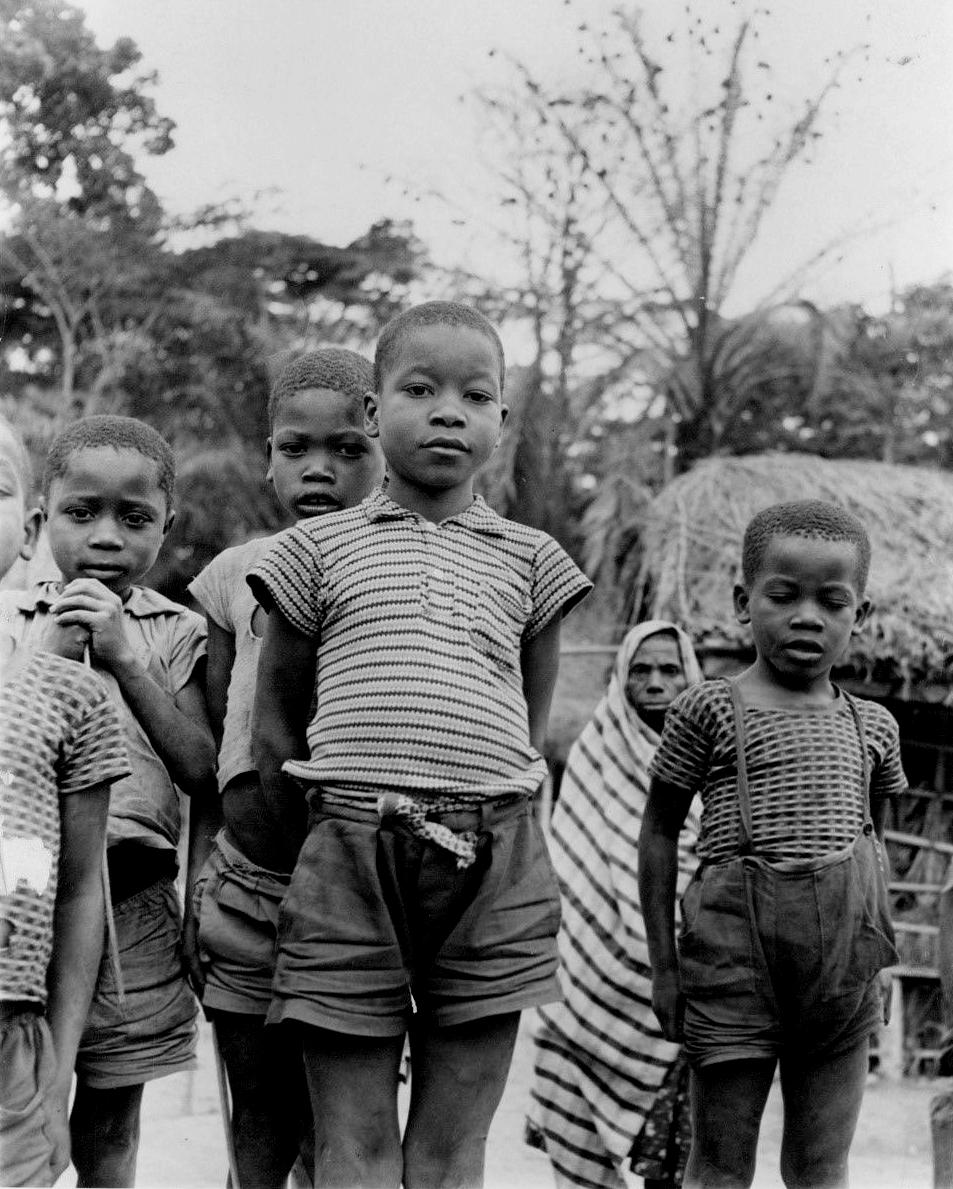
Refugees: Geographic Regions--Africa

Figure 1.--The Portugues effort to hold Angola and the subsequent fighting between tribably organized gurerrila groups created a large numbers of refugees. Here we see some of those refugees in South Africa after fleeling independence war in Angola. The photograph was taken in October 1966. The caption read, "'My children didn't seem to be people any more,'said the Bakongo tribeman with a bloated face and sad eyes. 'I lost my wife, a daughter and my mother on our way back from the mountins. They died, one by one. It has been a month since we started walking. We have been away from here ever since that day and that night." He was referring to the 1961 uprising against the Portuguese.
|
|
We do not know much about African refugees until the post-World War II De-colonization process. The resulting wars, tribal conlicts, and oppresive leaders have created large numbers of refugees, in some cases huge numbers. Congo has been especially troubled. The first major refugee crisis which began in 1960 actually continues to this day. With the departure of the European colonial powers, tribal conflicts began to emerge. Islamic extremism began to develop. A genocide in Rawanda and Sudan (Darfur and South Sudan) were especially tragic. The situation was furthur complicatd by the Cold War as well as environmental conditiobs, espcially the desertification of the Sahel. Serious refugee crises as a result developed in many Afreican countries. The countries involved did not have the administrarive and economic capabilities to deal with the problems and ideological beliefs in Socilism and Communism, despite the expectations of the new leaders and African people, adversely affected efforts at economic development that created problems and fed into unrest and refuge problems. Mist of the European powers turned over control pf their colonis peacefully. The exception was Portugal, leading to protracted gureilla wars in Angola and Mozambique.
Angola
Portugal refused to grant independence to Angola. As a result a protracted gurill war was fought in he 1960s abd early-70s. Refugess dlowed from rural areas where the fighting ensued. The gureilla war continued until a left-wing coup seized control in Lisbon. The result was a Portuguese withdrawl and independence for angola. This did bot, however, end the fighting. Guerilla groups orgnized along tribal grounds began fighting each other. And they became involved in the Cold War. The MPLA received Soviet support and Cuba inserted ots milaty . UNITA recrived ,ore limited support from the Wst and some South Africa support. The country was devestated and areas of the countrside depopulated from refugee flows. The MPLA eventually prevailed, but was unable to defeat UNITA totally. Commnist policies implemented by the MPLA prevented any ecomomix success. The country relied on oil exports from Cabinda to finance the Government, but the countruy was an ecomoic disaster.
Congo
Ethiopia
Nigeria
Rwanda
Sudan
CIH

Navigate the Children in History Website:
[Return to Main African refugee page]
[Return to Main specific refugee groups: country trends]
[Return to Main specific refugee groups]
[Return to Main refugee page]
[Return to Main children and war page]
[Return to Main war essay page]
[Introduction]
[Biographies]
[Chronology]
[Climatology]
[Clothing]
[Disease and Health]
[Economics]
[Geography]
[History]
[Human Nature]
[Law]
[Nationalism]
[Presidents]
[Religion]
[Royalty]
[Science]
[Social Class]
[Bibliographies]
[Contributions]
[FAQs]
[Glossaries]
[Images]
[Links]
[Registration]
[Tools]
[Children in History Home]
Created: 10:11 PM 2/4/2018
Last updated: 10:41 PM 3/3/2018



